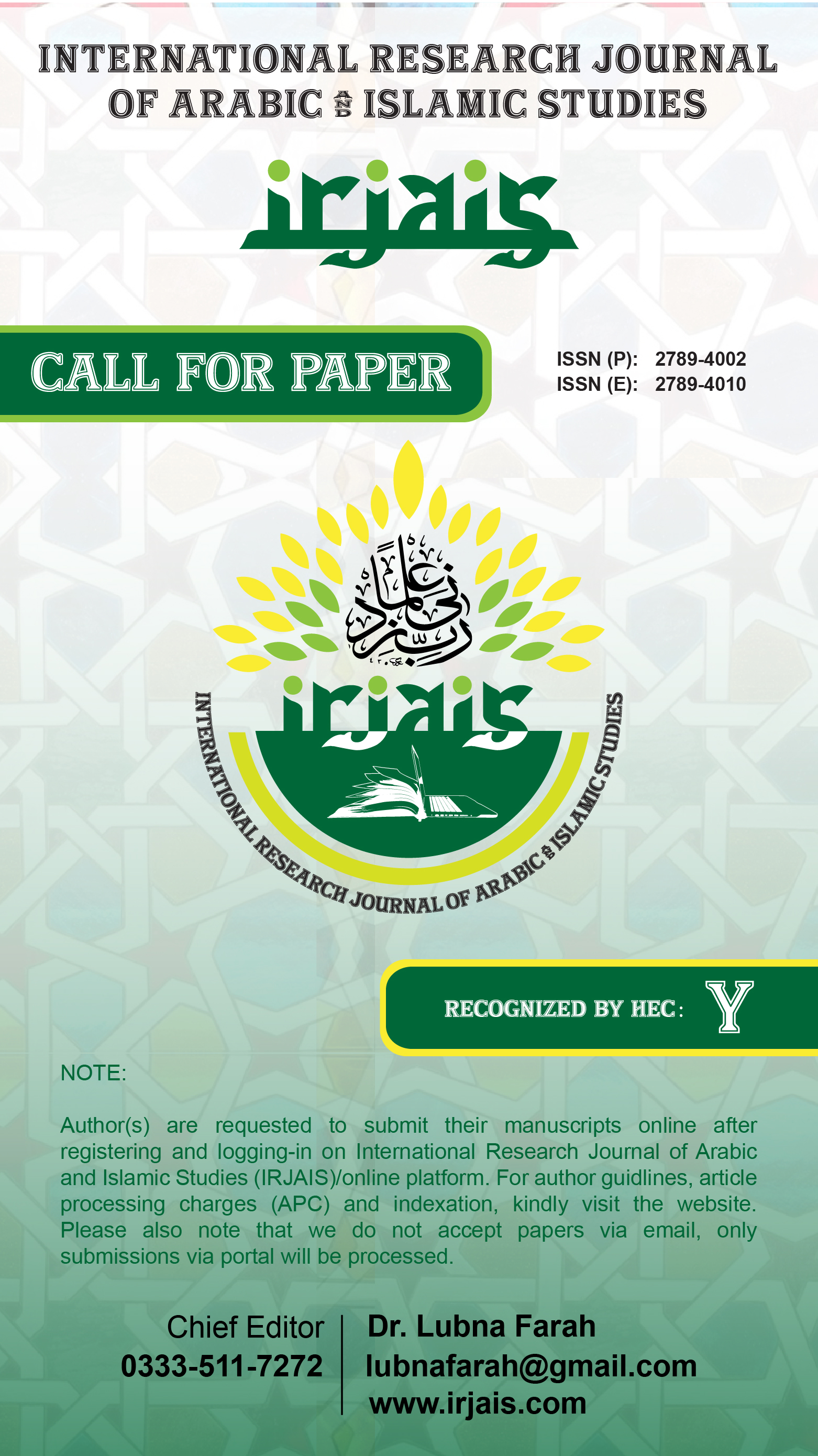قیادت کے اسلامی اور روایتی نکتہ ہائے نظر ، عالمی تناظر میں تقابلی جائزہ
Islamic and Traditional Perspectives of Leadership, A Comparative Analysis in Global Context
Keywords:
leadership, Islamic & traditional perspective, QuranAbstract
Leadership's majesty alone does not warrant unfettered obedience; rather, its legitimacy hinges on alignment with the Quran and Sunnah. Any deviation from this sacred framework renders it untenable. The Islamic concept of leadership diverges starkly from the prevailing political paradigm. Islam envisions a leadership that eschews absolutism and arbitrariness, instead guiding humanity towards the divine path through consultation, duty-bound, and balancing rights and obligations with equipoise. This alone deserves the mantle of true leadership. Modern leadership principles, rooted in tradition, emphasize the importance of psychological characteristics in leaders. Situational leadership emerges from this traditional framework, where only those capable of resolving specific challenges are deemed worthy. Moreover, effective leadership necessitates a concatenation of skills, qualities, knowledge, and experience. As problems often require diverse expertise, traditional leadership may transition between individuals. This paper seeks to answer pressing questions: What distinguishes Islamic and traditional leadership in today's global landscape? What viable forms of traditional leadership exist currently? And which perspective offers the most practical and efficacious approach for a nation's success, both in this life and the hereafter? Furthermore, this paper will present a comparative analysis of Islamic and traditional leadership perspectives, highlighting their merits and demerits in the global context.





